I didn’t have much time when I got back from Potosi mines. The only afternoon bus to Uyuni was for 2:30 pm. With all the dirt and dust still on all my clothes I went to the terminal. I didn’t even have time to have lunch. I had a few bananas that I bought from a small vendor in the terminal.
The road from Potosi to Uyuni was mostly a mountain road. There were many indians with sheep and llama. It was the first time I saw a llama. I wished I was driving my own car so I could stop whenever and wherever I wanted and play with llamas and see them more closely.
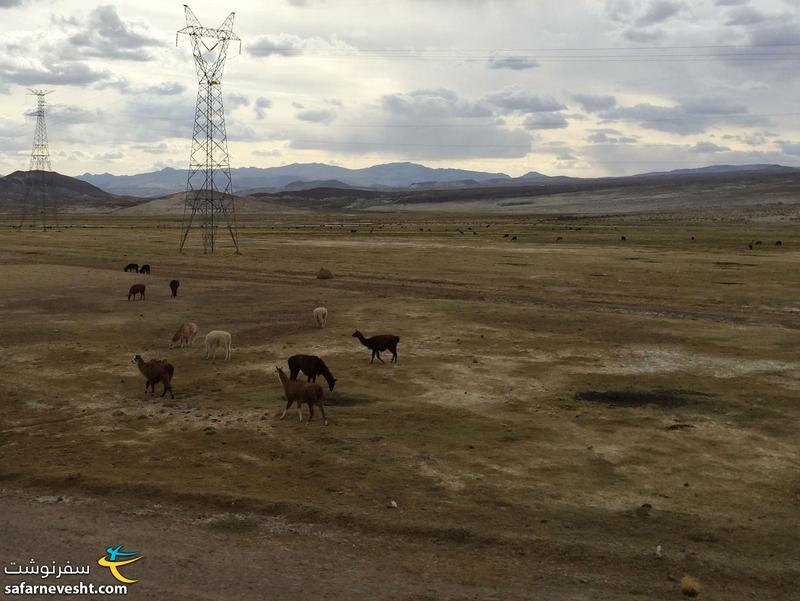
road from Potosi to Uyuni, Llamas were grazing
Bus ride took 4 hours. When I arrived I started looking for a place to stay. Uyuni is a big village. There were no hostels and I had to settle for an inn. Found a room for 6 dollars without any warming and a shared bathroom. I had to buy a tour for Uyuni’s salt flat. It was 8 pm and there weren’t many places open for me to buy a ticket. Based on what I had learned from other backpackers, there were 2 types of tours. 1-day and 3-day tours. I chose the 1-day tour. After sometime looking around and comparing ticket prices I was able to buy a ticket for 20 dollars. I also bought my bus ticket to La Paz for the next night.
I checked out at 9 am and went to the travel agency from which I had bought the tour ticket. Tour started at 9:30 am. We were a lovely group of 9 from Iran, Bolivia, UK, US and Brazil. Driver who was also our guide, was explaining everything in Spanish. Tours with an English speaking guide were much more expensive than 20 dollars.
Salar de Uyuni is the most popular attraction of Bolivia. This salt flat with at 10,000 square kilometers with an altitude of 3600 meters above the sea level is an infinite source of salt. The salt layer can be 10 meters thick in some places! In the rainy season (Nov-Feb) there is a layer of water all over the flat and makes it the biggest mirror in the world.
Before we enter the salt flat, we had a stop to visit the trains graveyard. The trains were brought here from England 100 years ago but the projects was never finished.
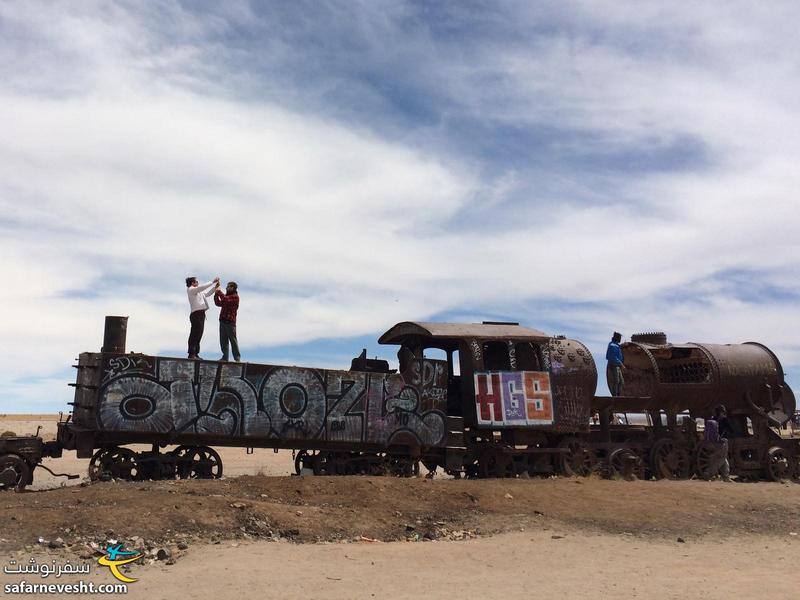
Trains graveyard
We were about to enter the salt flat that I asked our driver to stop and watch a flock of deers. The driver with the help of our American friend who knew some Spanish, explained that these beautiful animals weren’t deers and were in fact llama’s cousin, vicuna. Vicunas unlike llamas are not tame and friendly and in my opinion were more beautiful than llamas.
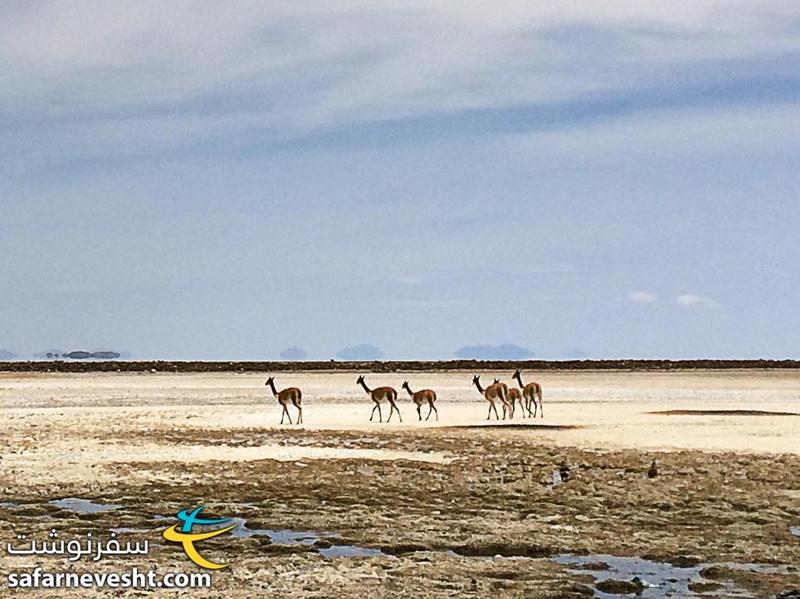
Vicuna, llama's cousin 🙂
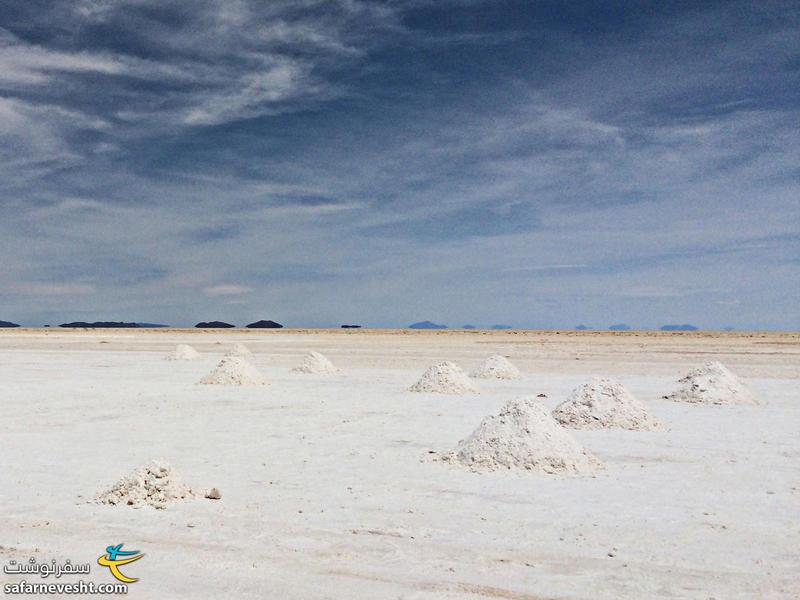
The place where there was still active salt extraction
After about 100 kilometers the Incahuasi Island appeared from afar. This island’s difference with other islands is that it is not surrounded by water, but salt. Slowly the giant cactuses also welcomed us. Before we go around the island, we had our lunch which was rice, steak, chicken, eggs and vegetables.
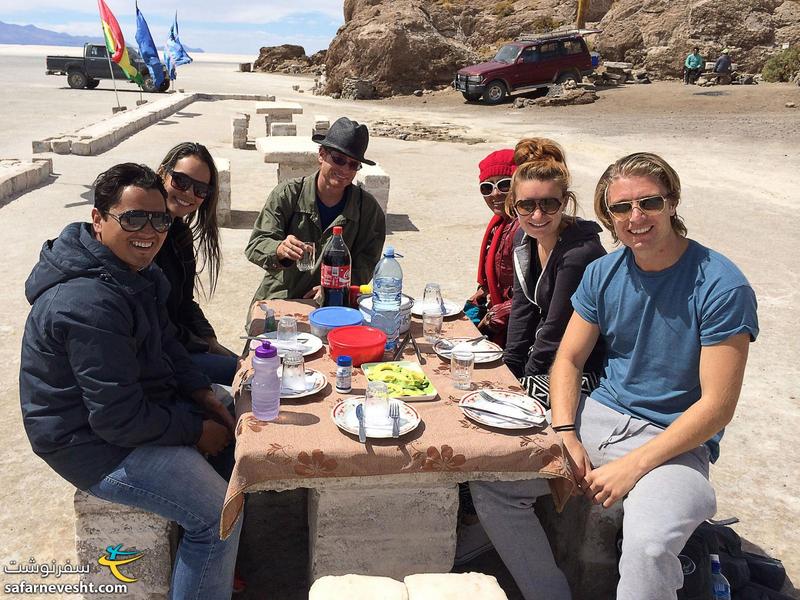
Our lovely group having lunch. From right: UK, UK, Bolivia, US, Brazil, Brazil
There was a walking path which made waking around the island much easier and also guarded the vegetation. Other name of the island was the Cactus Island. 5000 cactuses in all sizes some even 10 meters tall. Considering the very slow growth of cactuses and their height, I guessed some of them were more than 1000 years old! The Cactus Island was not very big and we finished visiting after 2 hours.
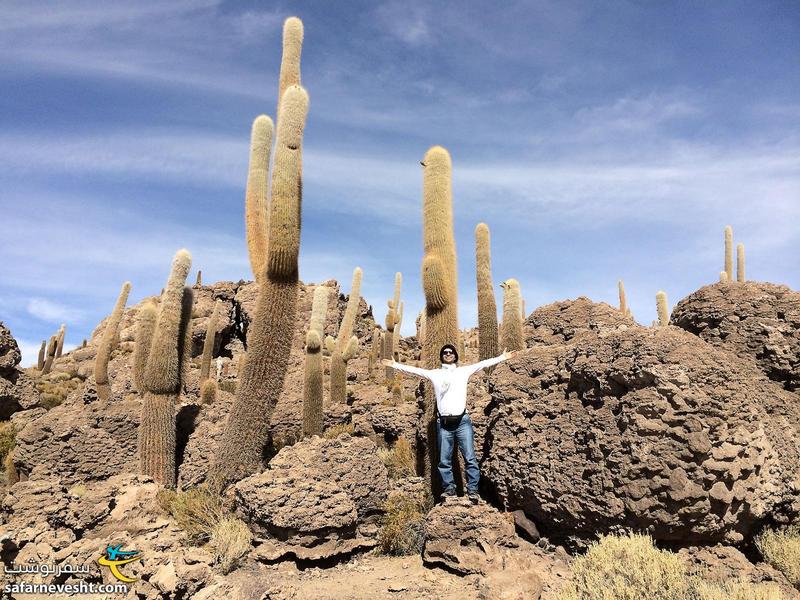
Huge cactuses were more than 1000 years old
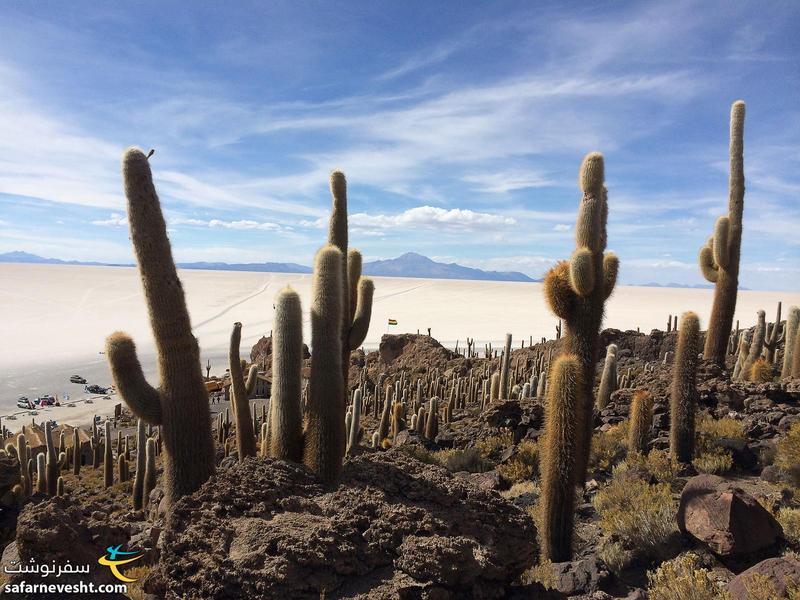
Salar de Uyuni view from cactus island
We had another stop in the middle of the salt flat and our group got creative with taking pictures.
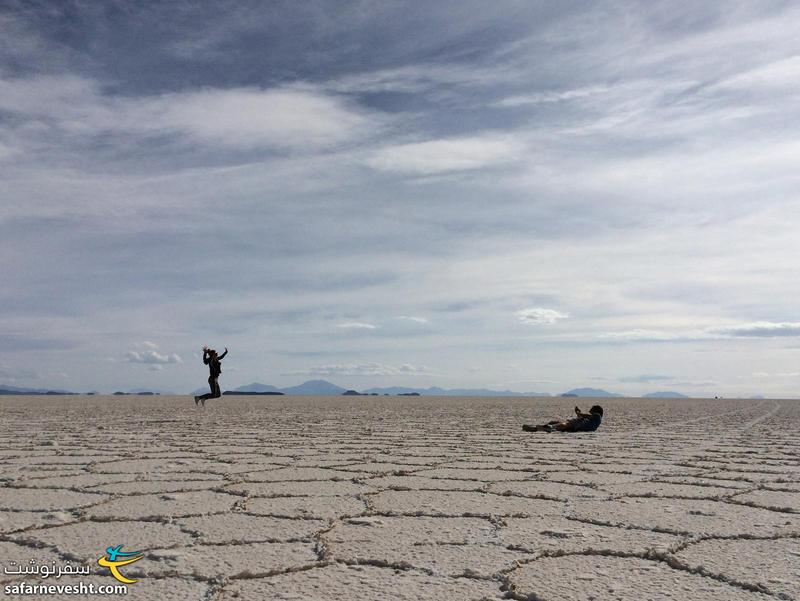
Salar de Uyuni
Our last stop was a hotel made of salt in the middle of the salt flat. We stayed there until sundown and went back to the Uyuni city.
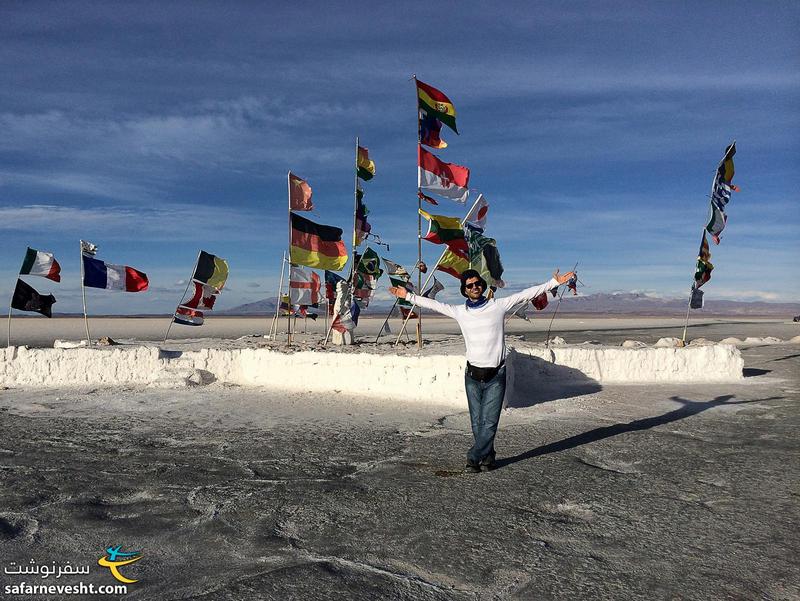
The flags in front of the hotel
Before going to La Paz I had a tasty dinner. barbecued llama is not something I’m going to forget easily. In my opinion it was more delicious than lamb.
Time of travel: September 2014
Ahmad Khani Iranian backpacker and travel lover
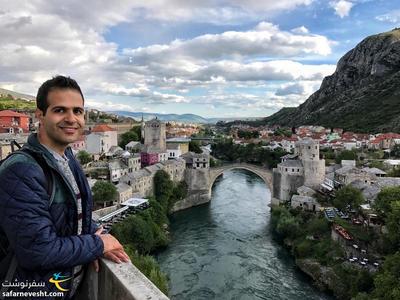 Bosnia and Herzegovina; From Mostar to Sarajevo
Bosnia and Herzegovina; From Mostar to Sarajevo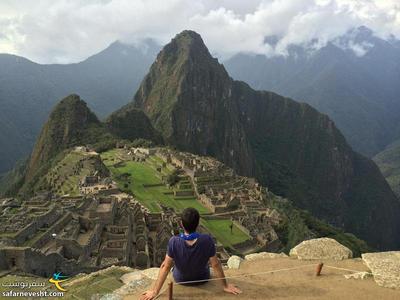 Machu Picchu; Lost City of the Incas
Machu Picchu; Lost City of the Incas
No comments yet